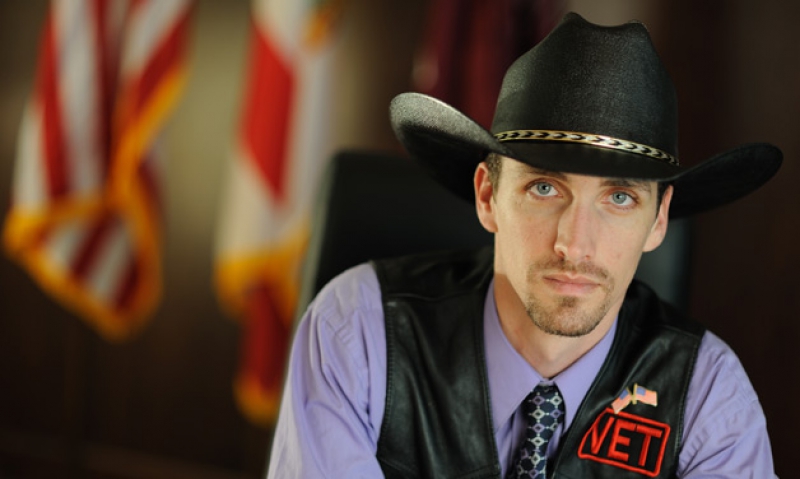
Post 397 at Hodges University hopes to become a source of camaraderie for its members and veterans at the school.
Since it helped author the original GI Bill in the 1940s, The American Legion has been by servicemembers’ sides as they pursue college educations. Most recently, the organization has moved onto college campuses around the country, developing posts for veterans who are coming home from overseas and looking for the camaraderie they enjoyed in the military.
One of the most recent locations for this movement is Hodges University, where a group of student veterans have started Post 397, which uses as its home the school’s two joint campuses – one in Naples and the other in Fort Myers. Led by adjutant John Ebling, the post established itself with a temporary charter in November.
It has since gained around 30 members – a mixture of students, faculty, staff and alumni of the school. Those members are eying bright plans for the post’s future – all of them focused on rejuvenating the camaraderie that they knew in the military but say is lacking in the civilian world.
"We can give (veterans at the school) somewhere to go for camaraderie," said Kenneth A. Worthy, a charter member of Post 397. "We can give them veterans, who they are used to being around. A lot of them have been in the military since they were 17 or 18 years old, gone onto combat and then come out. It takes them a while to adjust, so it’s best for them to be around people who they know."
Post 397, the second American Legion post to be founded on a college campus, began forming last summer when representatives from the Department of Florida gave a presentation during a veterans club meeting about the prospects of chartering a post at the school. Ebling took the idea and ran with it, coordinating the post’s founding with school administrators who were also keen to the idea.
It was a perfect fit for a school that has over 300 veterans attending, which is more than 10 percent of the entire student population.
"Creating a post on campus is an innovative way of recruiting Legion members," said Ebling, a Hodges alumnus. "A lot of the new veterans aren’t joining Legion posts like they have in the past because they have families and they are looking to further their careers. They aren’t going to join an organization just for the social benefits."
Worthy says part of the post’s goal is to become a networking system for former military at the school. This involves engaging the many student veterans who sit in the schools’ lobbies during breaks and identifying themselves as fellow veterans. They’re particularly focused on connecting veterans – whether they are members or non-members – with other veterans who have classes with each other, he says.
"Every time a new veteran comes in, we try to make sure that veteran is accepted," Worthy said. "If he says he is a veteran, we try to get him around other people who we know are veterans ... Especially if he is in the same class as other veterans, we try to get him to know those veterans in his class, so that way he’s got someone to go to."
Worthy, like many of the post’s members, wasn’t a Legion member before joining Post 397. But he was intrigued by the Department of Florida’s presentation and the opportunity to help veterans, so he decided to become a charter member.
Monte Warren, a student and faculty member, was in a similar position, having never joined the Legion despite spending 24 years in the Army National Guard. He said he previously thought the Legion was an organization for Vietnam or World War II veterans, but he looked into the prospect of joining and learned differently.
"The more research I did, the more I realized I wanted to be part of it," he said.
He’s excited for the chance to share his experiences with fellow veterans at the school.
"I really want to identify and convey with future students and future veterans what I went through," Warren said. "My story isn’t as extreme as some others, but that fits my personally type. I want to be able to assist them and help them with the (transition)."’
But for the post’s founding members, it comes back to developing camaraderie and making themselves available to each other for whatever type of support is needed.
"It’s difficult to duplicate the camaraderie you had in the service, but a lot of the aspects are there with the post," member Robert Dillon said. "With the Legion post, a lot of us meet in the cafeteria and talk, we help each other with homework issues, we ask each other how things are going at home."
- Education

